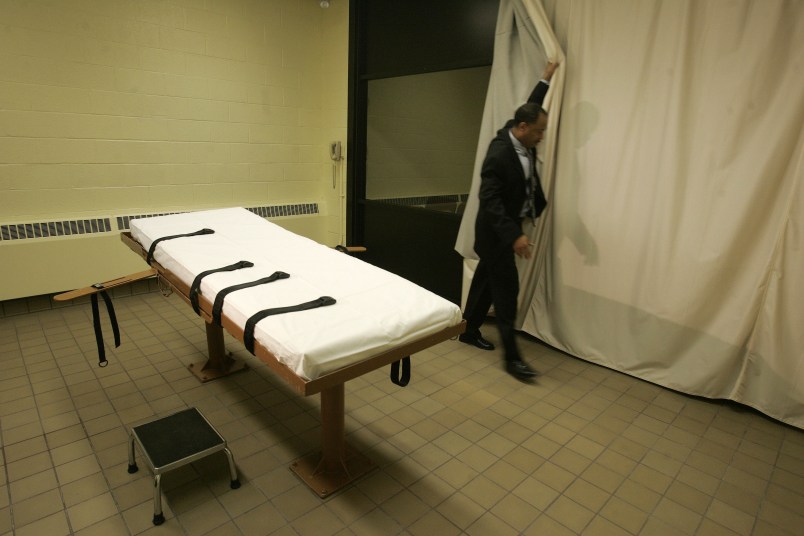Months after the botched execution of Clayton Derrell Lockett became national news, Oklahoma has introduced new protocol for lethal injection, the state Corrections Department announced late Tuesday.
The Oklahoman reported that the state will continue to use the sedative midazolam, but that it will now apply five times the dosage. Media access to executions also will be curtailed, dropping the number of witnesses allowed from twelve to five.
Meanwhile, lethal injection will still be carried out by an IV to the femoral vein, located along the inmate’s upper leg.
A Public Safety Department investigation attributed several problems to this practice in the case of Lockett, whose execution was botched when the drugs built up in his tissue near the insertion point. Lockett began convulsing and eventually died of a heart attack 43 minutes later.
According to the Oklahoman, the director of the Corrections Department declined to comment on the new protocol due to pending litigation.
A lawyer for death row inmates criticized the new rules, saying they bring little oversight and retain harmful practices.
“The protocol calls for less, not more transparency in executions, by limiting the number of media eyewitnesses and keeping information about the source and efficacy of the drugs from the prisoner,” attorney Dale Baich told the Oklahoman.







Isn’t living in Oklahoma punishment enough?
Five times the dosage of midazolam? Are they making this up as they go? Do they know how five times midazolam will interact with the drug cocktail they give these inmates?
Apparently they don’t give a shit.
If nothing else it might reduce the time that person convulses and foams at the mouth down to say, nine minutes.
In the Oklahoma mindset that is an improvement!
If I had to live in OK, I’d ask for 10x as much.